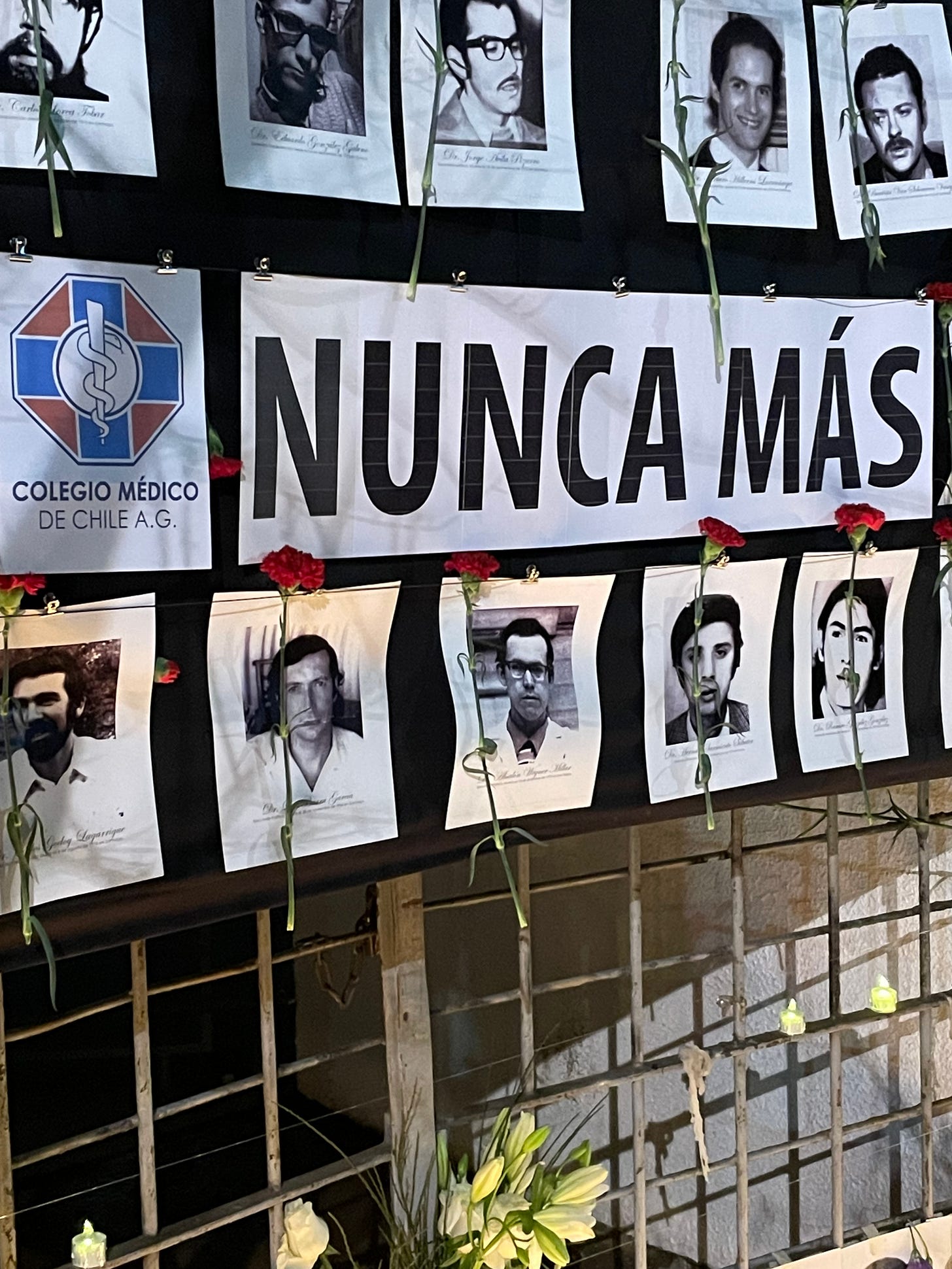Chile and The Other 9/11: Whose Truth, Whose Future, 50 Years On?
Jon Barnes examines Chile's right-wing denial of human rights crimes, and the political battles at the centre of last month's commemoration of the 50th Anniversary of the coup on 11 September 1973
Patricia Espejo Brain could barely speak through her tears as she gave a scene-by-scene account of the military coup of 11 September 1973, which toppled the democratically elected left-wing government of President Salvador Allende.
Fifty years later, Espejo, one of Allende’s private secretaries and advisers, was still suffering the pain of knowing the socialist leader faced death as the Chilean air force prepared to bombard the La Moneda presidential palace she had been barred from entering on arrival at work. Once composed, she described the trauma of her escape to a life in exile in Cuba where, along with Beatriz, one of Allende’s daughters, she immediately began campaigning for the restoration of democracy.
Hard Blows and Deep Wounds
Espejo was telling her story to a visibly moved group of young Chileans on a tour of Santiago’s Museum of Memory and Human Rights (MMDH), one of the vast array of organisations that held events across the capital and up and down Chile to commemorate the 50th anniversary of the coup.
Her shaken state was proof that the violent overthrow of Chile’s democracy was not an event easily confined to the past; it was an assault still delivering troubling blows today, even though she was heartened by the election of another socialist president, young former student leader Gabriel Boric, who took power in early 2022.
“The pain sinks deep in the mind, in the heart, it changes one’s life, but we need to be strong and tell what happened. That’s my work now, even though it can be frightening and hurts and breaks me sometimes,” she told me.
Keep reading with a 7-day free trial
Subscribe to Byline Supplement to keep reading this post and get 7 days of free access to the full post archives.




